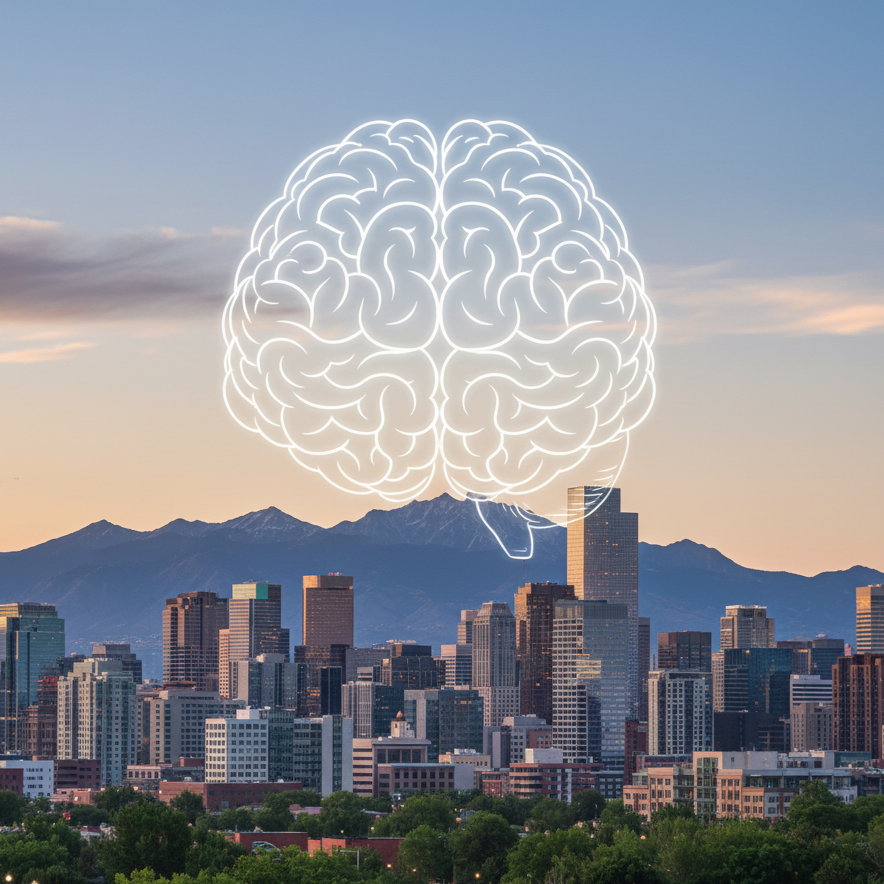
Blog
If the New Year Already Feels Heavy, You’re Not Doing It Wrong
By mid-January, a lot of people are already feeling behind. The motivation from January 1st fades, routines slip, and the pressure to “start strong” turns into quiet self-criticism. You might find yourself wondering why everyone else seems to be moving forward while you feel stuck or exhausted.
The truth is, this isn’t a personal failure. It’s a predictable response to unrealistic expectations, post-holiday stress, and a nervous system that hasn’t fully recovered yet. Therapy isn’t about forcing momentum or fixing motivation. It’s about understanding what’s weighing you down and learning how to move forward without burning yourself out.
This blog looks at why January feels heavier than expected and how therapy can help you reset in a way that’s realistic, sustainable, and actually supportive.
Denver CBT Therapy Explained: What It Is & Why It Works
Cognitive Behavioral Therapy (CBT) is one of the most researched and effective forms of therapy, but a lot of people still aren’t sure what it actually means. At its core, CBT helps you understand how your thoughts, emotions, and behaviors influence each other. When you change one piece of that pattern, the rest starts to shift too.
In this blog, we’ll break down how CBT works, what a typical session looks like, and how it helps with anxiety, depression, and stress. If you’ve ever wondered what “evidence-based” therapy really means or what happens behind the term CBT, this is a simple guide written for you.
If you’re curious about starting CBT in Denver, therapy can help you learn practical tools that make daily life feel lighter and more manageable.
Holiday Stress: How to Protect Your Mental Health During the Season
The holidays can bring joy, but they can also bring a long list of expectations, expenses, and emotional overload. Between family dynamics, financial pressure, and trying to make everything “perfect,” it’s easy to lose sight of what actually matters. Holiday stress doesn’t just make you tired, it can drain your mood, disrupt sleep, and reignite old anxieties.
At Heart and Mind Healing, I help clients slow down enough to enjoy the season again. Together, we use practical tools to manage triggers, set boundaries, and create moments of calm amid the chaos. This blog explores simple, evidence-based ways to protect your mental health during the holidays so you can experience connection and rest, not burnout and guilt.
If you’re ready to enjoy the season without the overwhelm, therapy can help you find balance and peace through it all.
Why Burnout Isn’t Just Stress (And How Therapy Helps)
Burnout is not a busy week. It is the slow fade that leaves you waking up tired, dreading tasks you used to handle, and feeling numb even when you are supposed to be off the clock. Stress can spike and settle. Burnout lingers. It drains energy, focus, and patience, and it spills into your health and relationships.
I work with many high‑achievers, students, and caregivers who have pushed through for so long that rest no longer resets anything. Therapy helps because it gives you space to name what is happening and a plan to change it. Together we rebuild boundaries, reshape habits, and reconnect your effort to your values so your day has meaning again.
If you keep telling yourself to push a little longer and nothing changes, it may be time to do this differently. Recovery is possible and it starts with one honest conversation.
Anxiety Therapy in Denver: Finding Calm in a Busy City
Living in Denver means balancing fast-paced work, traffic, and a city that never really slows down. For many, that constant movement leaves little space for calm. Anxiety shows up in racing thoughts, a tight chest, or restless nights. Left unchecked, it can feel like life is running you instead of the other way around.
At Heart and Mind Healing, I help Denver professionals, students, and parents step back from the overwhelm and regain control. Through anxiety therapy, we use tools like CBT and mindfulness to reduce symptoms and create breathing room. The goal isn’t to eliminate all stress—it’s to help you respond differently so you feel grounded, steady, and capable again.
If you’re tired of anxiety running the show, therapy can help you reclaim your balance and find your calm—even in the middle of the city.
Proactive Strategies for Coping with Depression: A Denver Perspective
Depression can feel isolating, but you’re not alone. Discover practical strategies from a Denver therapist to manage depression, build resilience, and find local support.
Back-to-School Mental Health: Tips for Denver Parents & Young Adults
Back-to-school season in Denver brings excitement—and stress. Whether you’re a parent or student, learn how to navigate new routines, ease anxiety, and support your family’s mental health with practical tips from a local therapist. Discover resources, insights, and ways to make this transition smoother for everyone.
Thought-Terminating Clichés: What They Are and How to Recognize Them
Are you tired of hearing phrases that shut down real conversations? Our latest blog dives into “thought-terminating clichés” and how to move past them for better mental health.
Spring Cleaning for Your Mental Health: How Therapy Can Help You Refresh and Reset
Spring is the perfect time to not only declutter your home but also refresh your mental health. At Heart and Mind Healing in Denver, we provide therapy services that help you release emotional clutter, heal from past experiences, and set meaningful goals for the months ahead. Discover how therapies like CBT, Solution Focused, and VR therapy can guide you toward a lighter, more balanced life.
Navigating Anxiety Amidst Economic Hardships
In the midst of economic hardships, anxiety often surfaces as we face financial stress and uncertainty. We can navigate this turmoil by exploring our inner selves. Acknowledge your Shadow Self, the hidden fears and insecurities that economic strain may reveal. Embrace empowering archetypes like the Warrior to find courage and resilience. Engage in mindfulness practices to stay grounded, and connect with community for support. By transforming suffering into a journey of personal growth, we not only cope with anxiety but also emerge stronger from financial challenges.
Tapping Your Kong
With a long history of use as symbols in spiritual and cultural traditions, totems are now being explored in therapy as a powerful tool for emotional healing. Totems can function as symbolic anchors that may help people negotiate complex feelings more clearly within compartmentalization, a procedure in which individuals separate all kinds of conflicting emotions into other 'compartments' of the mind. Certain totems will be associated with an emotional state, such as using a lion for anger or a bird for freedom, which helps the client to externalize his inner struggle and is more easily processed and comprehended. It can allow for a more structured way to confront and integrate emotions for overall mental well-being.
Navigating Grief: Finding Comfort and Strength in Difficult Times
Grief is such an intensely personal journey: overwhelmingly so; it's unpredictable. Sometimes, it feels like a tidal wave, and at other times, like a gentle ache. Allow yourself to do it all; there is no right way to grieve. Do not be afraid to ask for help, to take care of yourself, and to find every small comfort possible. Healing takes time; it is all right to look for help when the burden feels too heavy to bear alone. Remember, your path through grief is as individual as your love for the one you have lost.
Is Trauma Hiding in Your Daily Life? 8 Signs to Watch Out For
Life's highs and lows highlight great resilience but also may leave deep scars when trauma strikes. Unaddressed, unprocessed trauma silently disrupts your thoughts, emotions, and relationships. From chronic anxiety to the inability to form healthy connections, signs of unprocessed trauma are of utmost importance. The ability to recognize these signs is the very first step in getting your well-being back. Seeking professional help, engaging in self-care practices, and working on creating a good support system will help you start the process toward healing from the trauma and enjoying life more fully and peacefully. Remember: Healing is a journey. Take one step at a time.
Unpacking PTSD and Micro-trauma: The Darker Layers of Trauma
While both PTSD and micro-trauma can deeply impact our mental health, they stem from different experiences. PTSD often follows a specific, intense event, like a traumatic accident or assault, leading to vivid, unwanted memories that can feel impossible to escape. On the other hand, micro-trauma is the result of ongoing, subtle stressors—those small, daily challenges that quietly erode our sense of well-being over time. Recognizing whether you're dealing with the aftershocks of a singular trauma or the cumulative weight of micro-traumas is essential in guiding your healing journey.














